Denene Millner Books
With the support of the publisher, Shelf Awareness celebrates the Simon & Schuster children's imprint Denene Millner Books and its dedication to Black joy.

With the support of the publisher, Shelf Awareness celebrates the Simon & Schuster children's imprint Denene Millner Books and its dedication to Black joy.

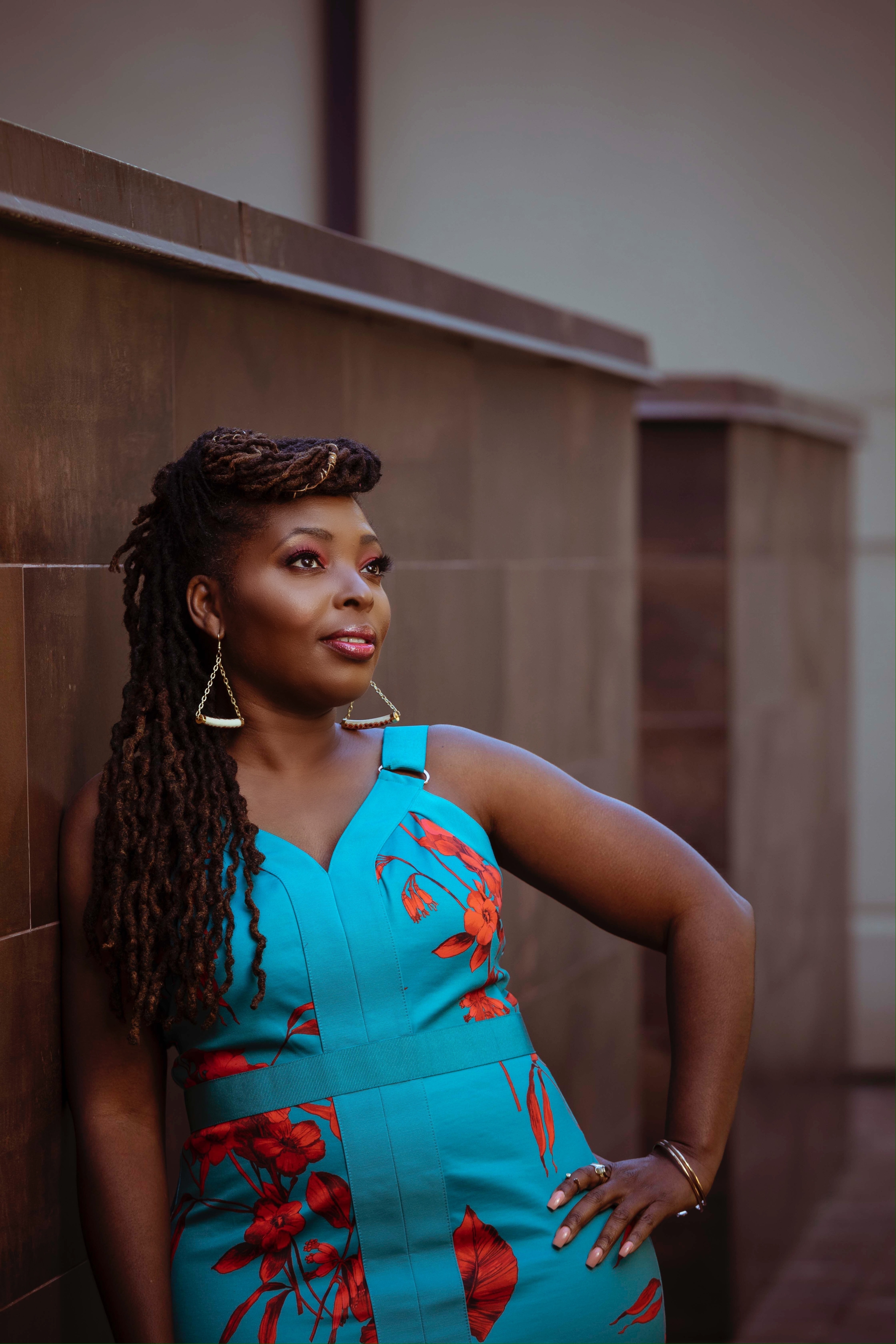 |
|
| Denene Millner | |
The thing is, I was just a kid who loved books—A Little Princess, the Ramona series by Beverly Cleary, that "I must, I must, I must increase my bust" exercise Margaret practiced in Judy Blume's Are You There God, It's Me, Margaret—were all refuges for this studious, story-loving Black girl from Long Island, New York. But there weren't any characters who looked like me, who had regular Black girl experiences, in my favorite tomes. It wouldn't be until I got to college and was assigned Toni Morrison's Song of Solomon that I could put my finger on what I'd been missing all my reading life: I needed—deserved—to see myself reflected in the pages of the books I read.
I promised that when I had daughters of my own that this wouldn't be their reality—that they would have bookshelves full of tales about loving Black families having distinctly Black experiences within universal stories. Alas, pre-Internet, they were hard to come by. Frankly, they still are. The latest statistics on the diversity of characters in children's books, as chronicled annually by the Cooperative Children's Book Center, found that of more than 3,700 books published in 2019, only about 12% featured Black characters. Basically, children are more likely to see a book about a talking animal than they are Black children.
Denene Millner Books' mission is to change that—to not only give Black children the chance to see their lives reflected in the stories on their bookshelves, but to also deliver to Black children universal childhood experiences that celebrate the everyday beauty of being little humans of color. Be clear: this imprint is a clarion call for those who care deeply about Black children to embrace Black joy as resistance to the narrative that our babies are anything but good. Wanted. Beautiful. Love.
To that end, I choose to use this platform to dream of a world where children can see themselves using their imaginations, like in Markette Sheppard's My Rainy Day Rocket Ship, and spending a glorious, love-filled day with their mothers, like in Cozbi A. Cabrera's Me & Mama and Alice Faye Duncan's Just Like a Mama—where they can imagine themselves as kick-butt warriors with gods in their bloodlines, as conjured by J. Elle in her YA fantasy, Wings of Ebony, and understanding, too, that Blackness is as wide and expansive as it is beautiful, as Sili Recio celebrates in her book, If Dominican Were a Color.
I've also committed to using Denene Millner Books to kick down some doors—to up the abysmally low number of Black creators telling and illustrating stories about Black children and families. It is my personal effort to increase the numbers of Black creators telling Black stories within the Big five publishing houses.
With this passion and commitment, Denene Millner Books aims to add to that small but important canon of books that paves the way for children to see themselves—their whole selves—on the page. Think of Denene Millner Books's offerings as love letters to children of color who deserve to see their beauty and humanity in the most remarkable form of entertainment on the planet: books. Little Denene would have loved them. Today's little humans deserve them. Denene Millner Books is so very happy to do its part. —Denene Millner
Denene Millner is a New York Times bestselling author, award-winning journalist and vice-president and publisher of the Denene Millner Books imprint. She has written 30 books for adults, teens and children, among them Around the Way Girl, a memoir with actress Taraji P. Henson, and Early Sunday Morning, a children's picture book. She is also the founder of MyBrownBaby.com, a critically acclaimed blog that examines the intersection of parenting and race, and the host of Speakeasy with Denene, a podcast produced by Georgia Public Broadcasting. Denene lives in Atlanta with her two daughters and their adorable Goldendoodle, Teddy.
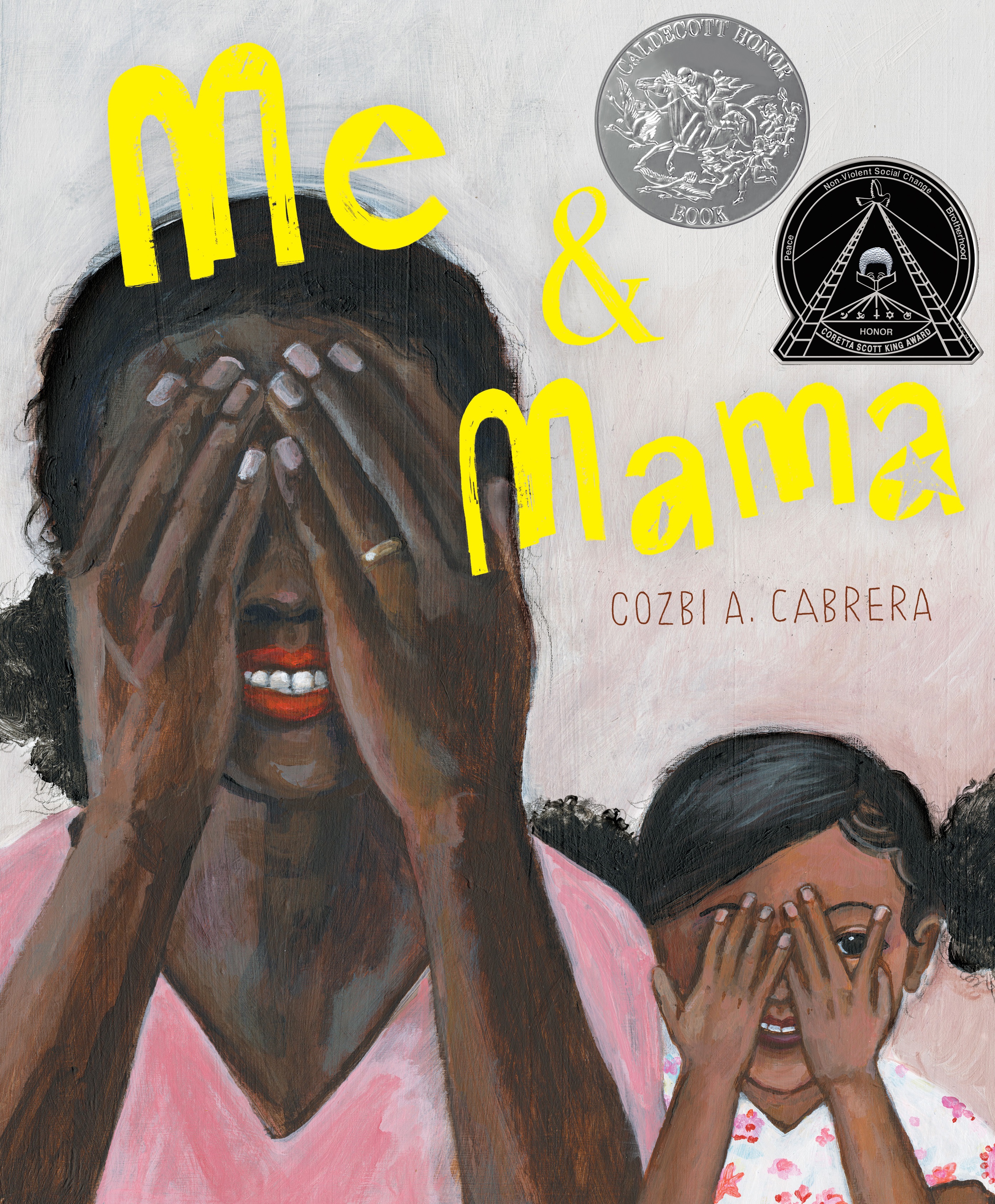 Cozbi A. Cabrera received a BFA from Parsons School of Design. She is the illustrator of several acclaimed children's picture books, she designs clothes and she makes cloth dolls that have garnered the attention of collectors around the world. Here she is interviewed by Denene Millner, publisher of Cabrera's book, Me & Mama, a Caldecott and Coretta Scott King Illustrator Honor Book.
Cozbi A. Cabrera received a BFA from Parsons School of Design. She is the illustrator of several acclaimed children's picture books, she designs clothes and she makes cloth dolls that have garnered the attention of collectors around the world. Here she is interviewed by Denene Millner, publisher of Cabrera's book, Me & Mama, a Caldecott and Coretta Scott King Illustrator Honor Book.
Denene Millner: You are a fine artist in every sense of the word, having made everything from your gorgeous muñecas and clothing to textiles and paintings. What led you to children's book illustration?
Cozbi Cabrera: I've always been drawn to children's books—collecting the ones that spoke to my heart, even prior to my daughter's arrival. I collected them for me. There's a simplicity in the format, storytelling and image capture that can stir a heart—even an adult heart. It's a powerful medium. My best friend gave me The Talking Eggs, illustrated by Jerry Pinkney and written by Robert D. San Souci, as a birthday gift in my early 20s with an inscription: "I hope the story and the illustrations will be an inspiration and incentive to helping you realize your dreams as a storyteller and illustrator, love always."
As fortune would have it, a college friend, Laura Pegram (now of Kweli Journal), approached me to illustrate two of her board books for an independent publisher while I was designing for music. I put together full book dummies for a couple more of her delightful stories that didn't make it to release. Fast forward: while exhibiting my dolls, an editor approached me with an invitation to illustrate a manuscript thinking I'd deliver it as textile art and not aware I'd done other books. Other invitations followed.
Millner: You have such a distinctive illustration style. How would you describe it and how have you honed it over the years?
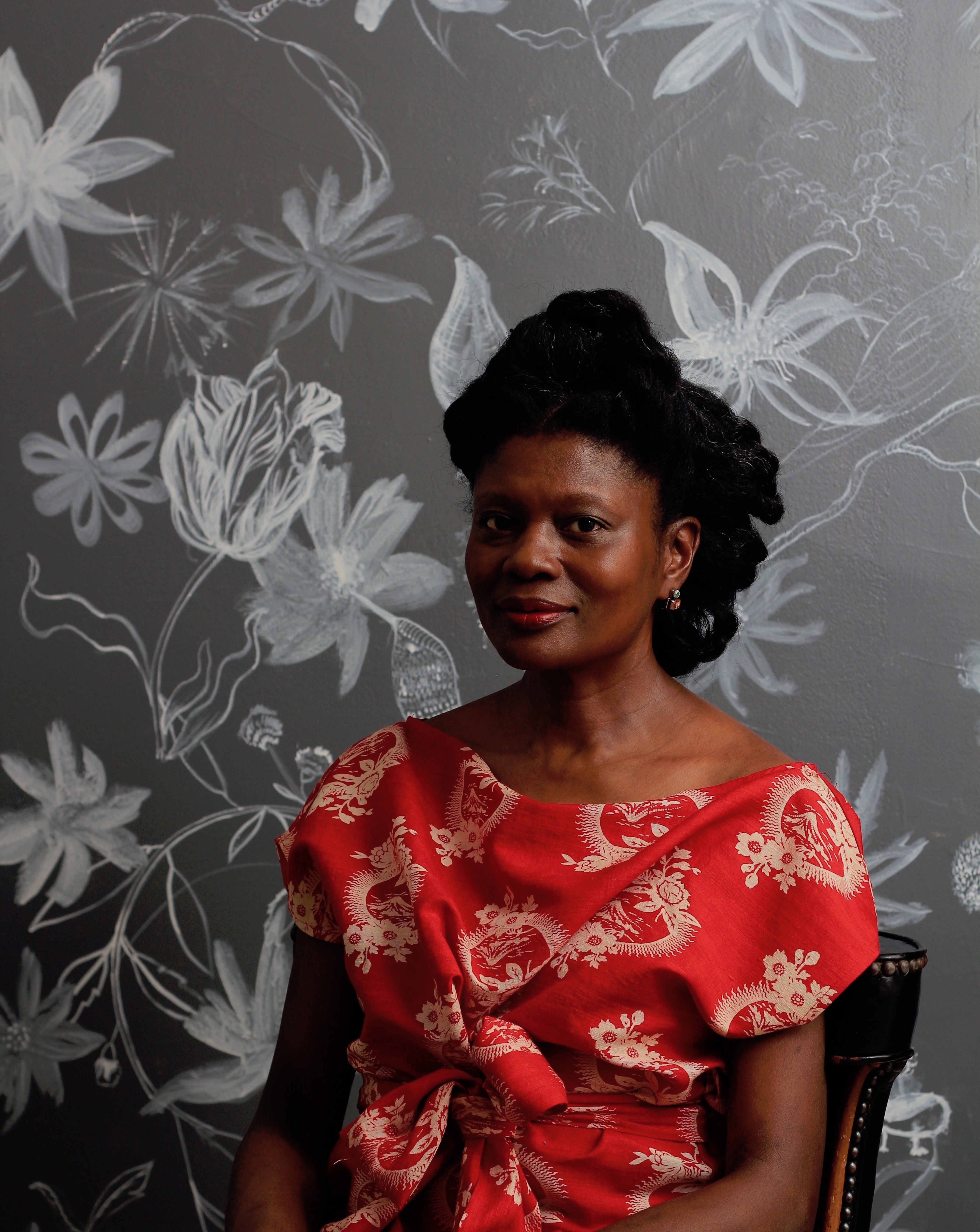 |
|
| Cozbi Cabrera | |
Cabrera: I think I've refrained from describing it. I love to paint, and I love paint. That sounds like a simple statement, but there's something about allowing your materials to be what they are that helps. If I want to reupholster a leather chair for example, I wouldn't select a vinyl and try to imitate the leather. No, if leather's not available (I can hear our vegans wincing—it's only to illustrate a point), I'd go for a hand-woven fabric, or say, a mohair velvet. In other words, I'd choose a material that was "itself." Materials selection and handling is the beginning of authenticity in creating and goes hand in hand with having your say. The Gee's Bend quilters demonstrate this beautifully with quilts made from work-clothes, real material. We see evidence of hard labor in every stain, faded and patched knee reworked into a thing of utility and beauty. Every artist (whether fine or commercial) lends their voice, discernment, taste and point of view to every project. I do my best to find the heart in every project—its emotional undertone.
Keen observation, being clear about what I like, lots of life study and a drawing practice is how I've honed my illustration style over the years. I see a limitless runway ahead with so much potential for exploration and growth!
Millner: Me & Mama is such an extraordinary book about an ordinary day. What inspired the story, and what lessons do you hope readers take away from it?
Cabrera: Me & Mama was inspired by a broken cup. My then three-year-old was trying to get me a cup of water in my favorite cup. Children are so new to this world, and I understood that she knew nothing about distinguishing between what's breakable, even while knowing the word "breakable." She didn't know about gravity, about calculating the width of the water cooler ledge relative to the bottom of the now filled cup, the unforgiving nature of ceramic tile. So, CRASH, KABOOM! And there are many moments like that in the rearing of a child, this precious contract we engage in while all the learning, shaping and celebrating what is occurring in these tender souls. I wanted to record this string of moments, the beauty and richness of time spent together. Children value this more than material preferences. My hope? To touch the hearts of the little ones in our laps and the bigger ones reading aloud.
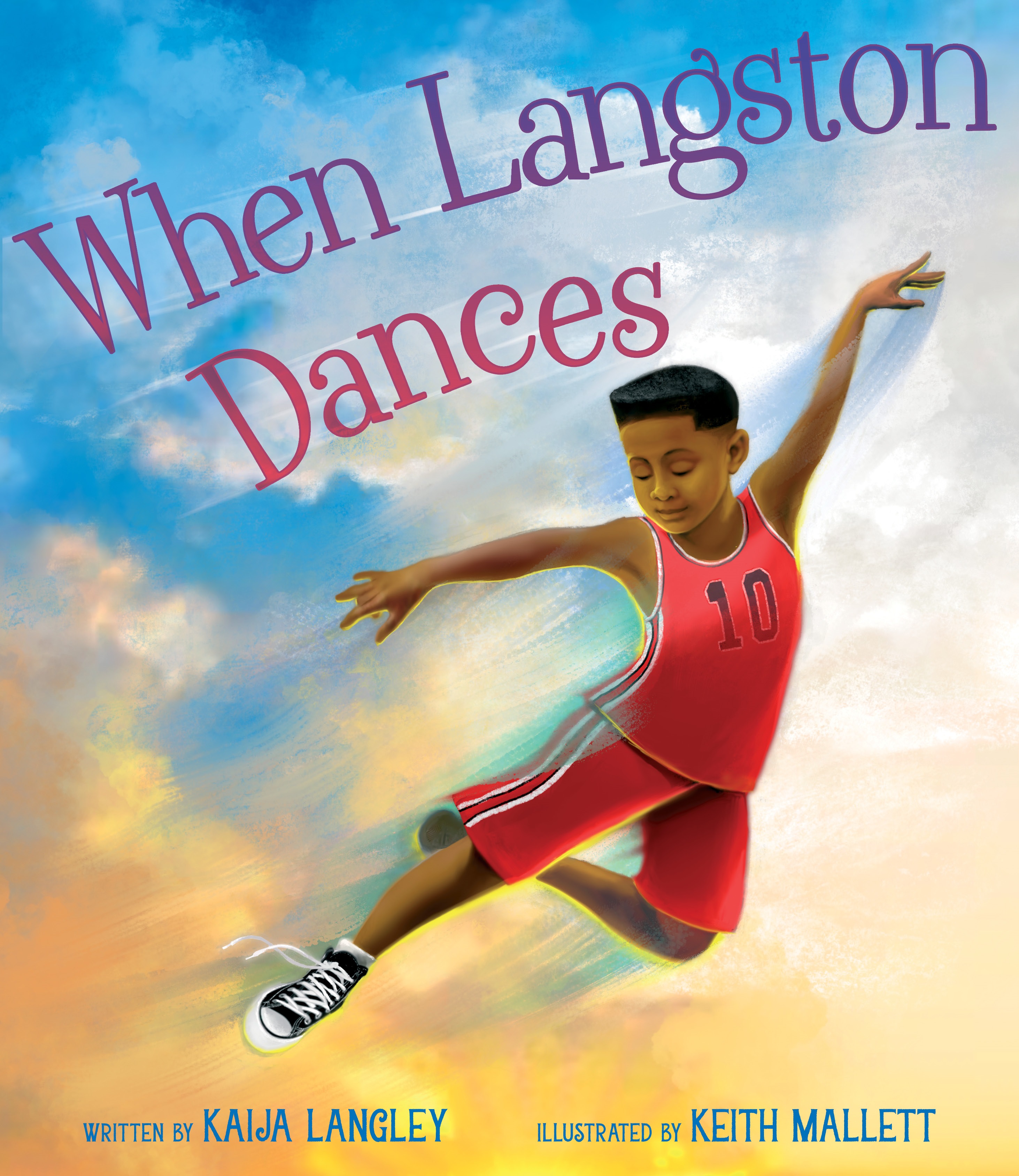
Kaija Langley was born in East Orange, N.J., and started writing poems for her family and classmates at age seven. She has called many places home over the years, but currently writes and lives with her Beloved in Cambridge, Mass. When Langston Dances, publishing in September, is her debut picture book.
Keith Mallett has spent his whole life drawing and painting. He lives in San Diego with his wife and dog, and he loves illustrating books.
Keith Mallett: Denene Millner Books is dedicated to "celebrating the everyday humanity of Black children and families." How does When Langston Dances exemplify this goal?
Kaija Langley: This is a story about a little Black boy's first day of ballet class. His interest in the art form is ignited by watching a professional dance performance and he leaves fired up to try ballet for himself. He falls in love with the way he feels moving his body with the full support of his mother. Every child's early years are full of first experiences that shape their childhood and have the potential to shape who they'll be in the world.
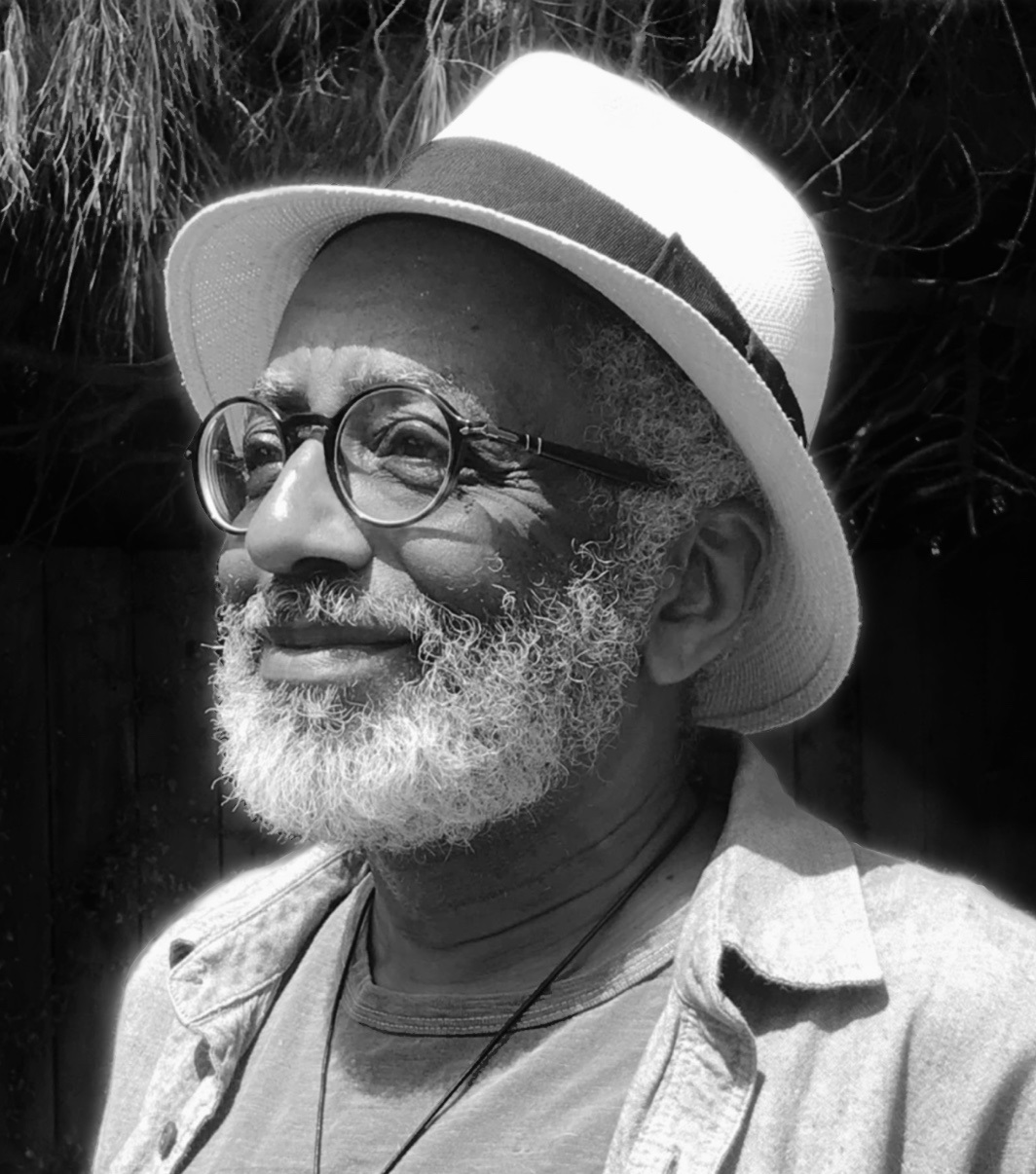 |
|
| Keith Mallet | |
Mallett: It's great that you're using the story to confront a still persistent gender stereotype that boys don't dance, and most certainly don't do ballet. Plus, I really enjoy stories about rebel spirits, and I felt Langston's story embodied that kind of energy. What inspired it?
Langley: Langston is inspired by my godson and a decades-long love of dance in every form. Several summers ago, I learned my godson was the only boy in his ballet class. He's fierce and adamant that he'll dance professionally when he grows up. That same summer while I was visiting Jacob's Pillow, an annual summer dance festival that brings dancers from around the world to share their artistry on stage, give artist talks and train young dancers, the seed was planted. Little boys deserve to see themselves represented in dance, too. It's long overdue that society allow boys to express themselves physically in a variety of ways, beyond just sports. I love that you celebrate this in your dedication, which reads, "To those who believe their dreams can come true." How do you want readers to feel when they experience this book?
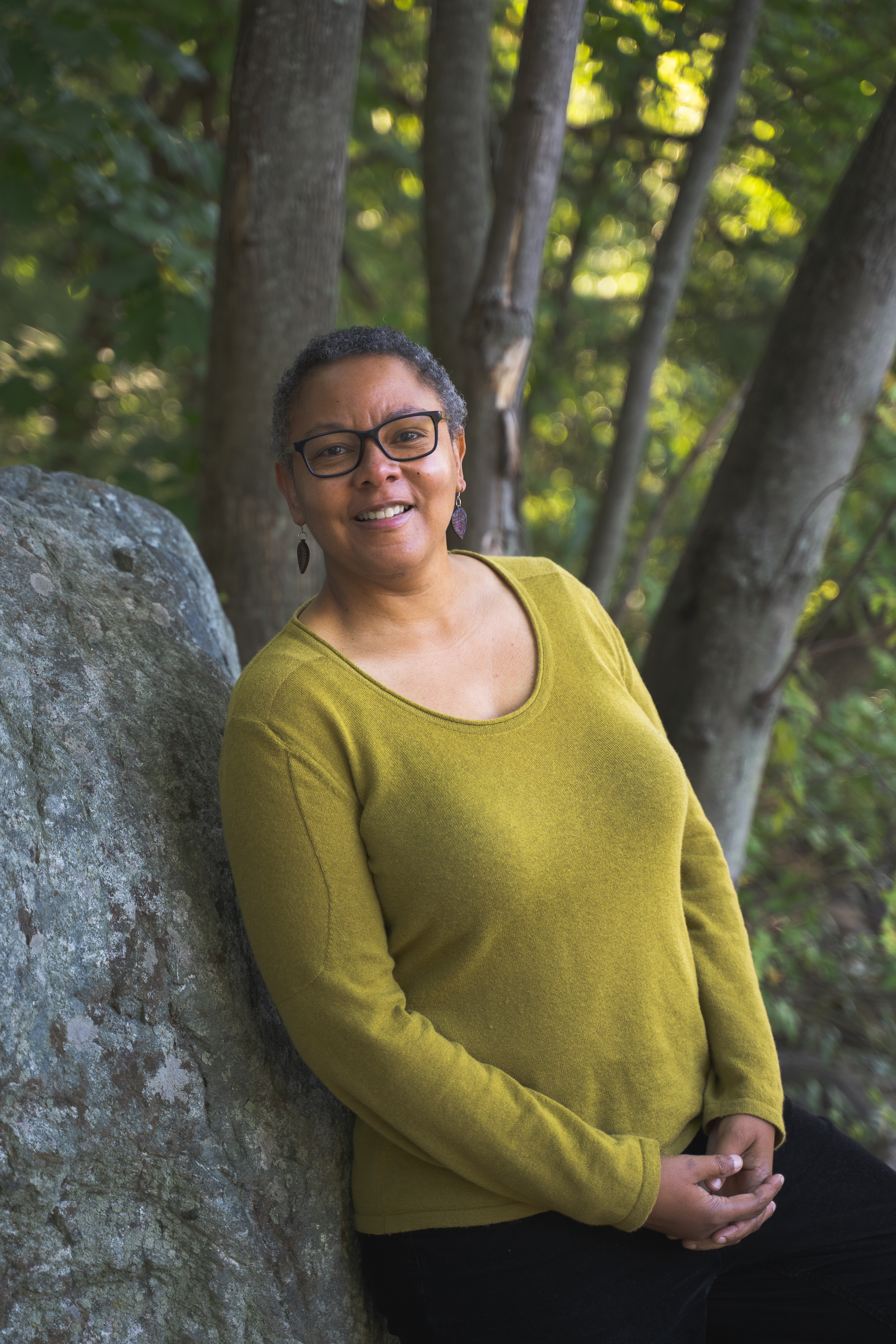 |
|
| Kaija Langley | |
Mallett: Well, Langston is raised by a single mother who understands the importance of athletics and the arts. Her guidance enables Langston to chase, then capture, his dream. I want young readers to see and feel all of the emotions that Langston feels: his joy, his doubts, his strengths. It's exciting, and I loved illustrating that on the page. What are you most excited about with the publication of When Langston Dances?
Langley: Having this gorgeously illustrated story about a happy, loved and determined Black boy who enjoys ballet in the world. Every time someone tries to limit a child's desire, I hope someone shares a copy of When Langston Dances. It's about dance, sure, but it's also a universal story about courage, perseverance and triumph!
 When Langston Dances by Kaija Langley, illus. by Keith Mallett ($17.99, hardcover, 40p., ages 4-8, 9781534485198, September 7, 2021)
When Langston Dances by Kaija Langley, illus. by Keith Mallett ($17.99, hardcover, 40p., ages 4-8, 9781534485198, September 7, 2021)
Millner: This book is pure joy from the first page—that's what grabbed me. But deeper, what Kaija Langley managed to build is a simple story about a determined Black boy who, with the help of his mother, pursues his passion, soaring, quite literally, beyond boundaries typically erected to keep Black boys in a very specific place. Plus, Keith Mallett's illustrations dance on the page!
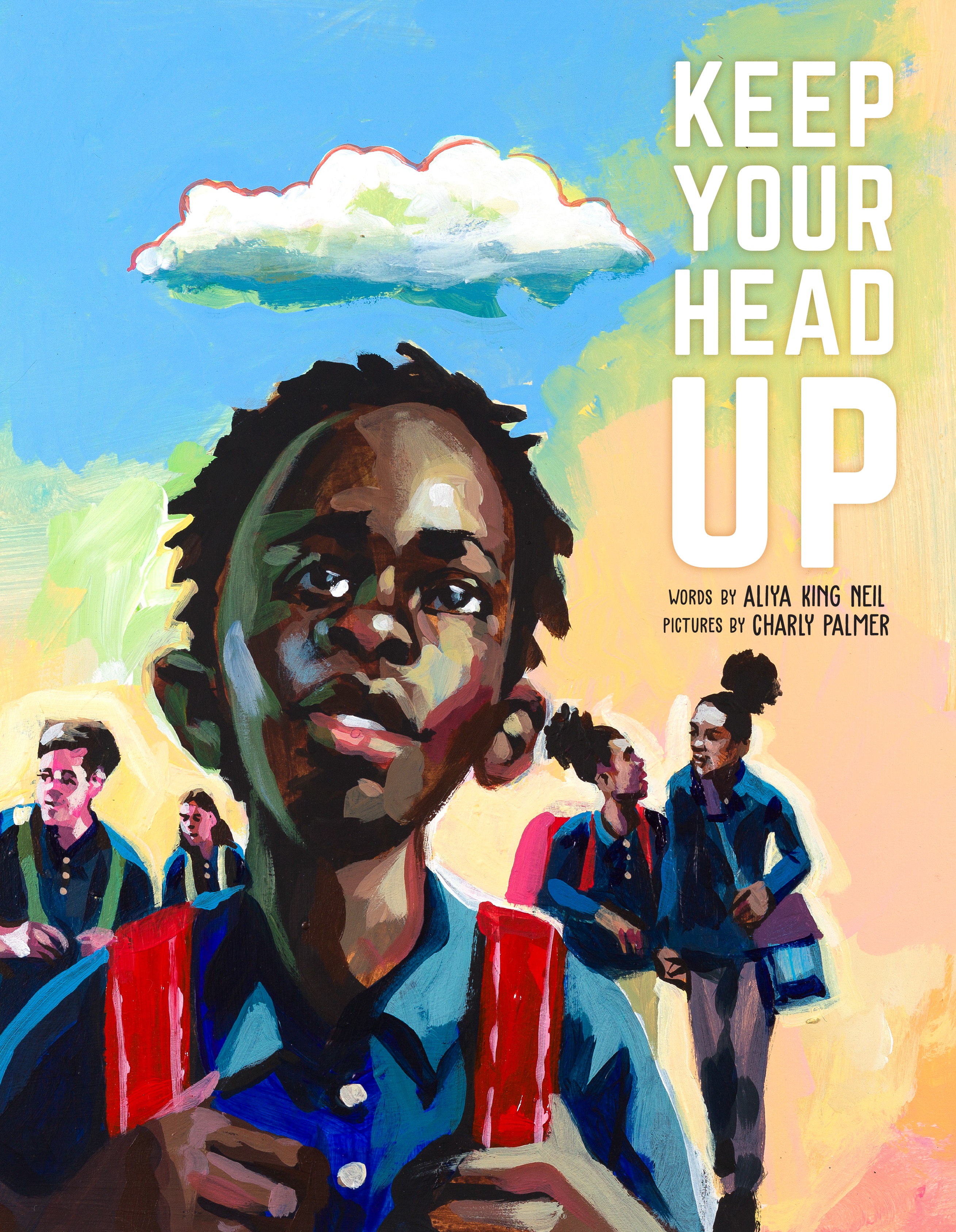 Keep Your Head Up by Aliya S. King, illus. by Charly Palmer ($17.99, hardcover, 32p., ages 4-8, 9781534480407, September 28, 2021)
Keep Your Head Up by Aliya S. King, illus. by Charly Palmer ($17.99, hardcover, 32p., ages 4-8, 9781534480407, September 28, 2021)
Millner: The statistics tell the story: Black boys are typically over-punished for behavior typical of all children. Aliya's book grabbed me because its words wrap this little Black boy, who's having a bad day, in love and, more importantly, understanding, revealing Black boys' humanity and encouraging caregivers to consider that first, before they react to challenging behavior. Charly Palmer's lush illustrations add so much color and light to the character.
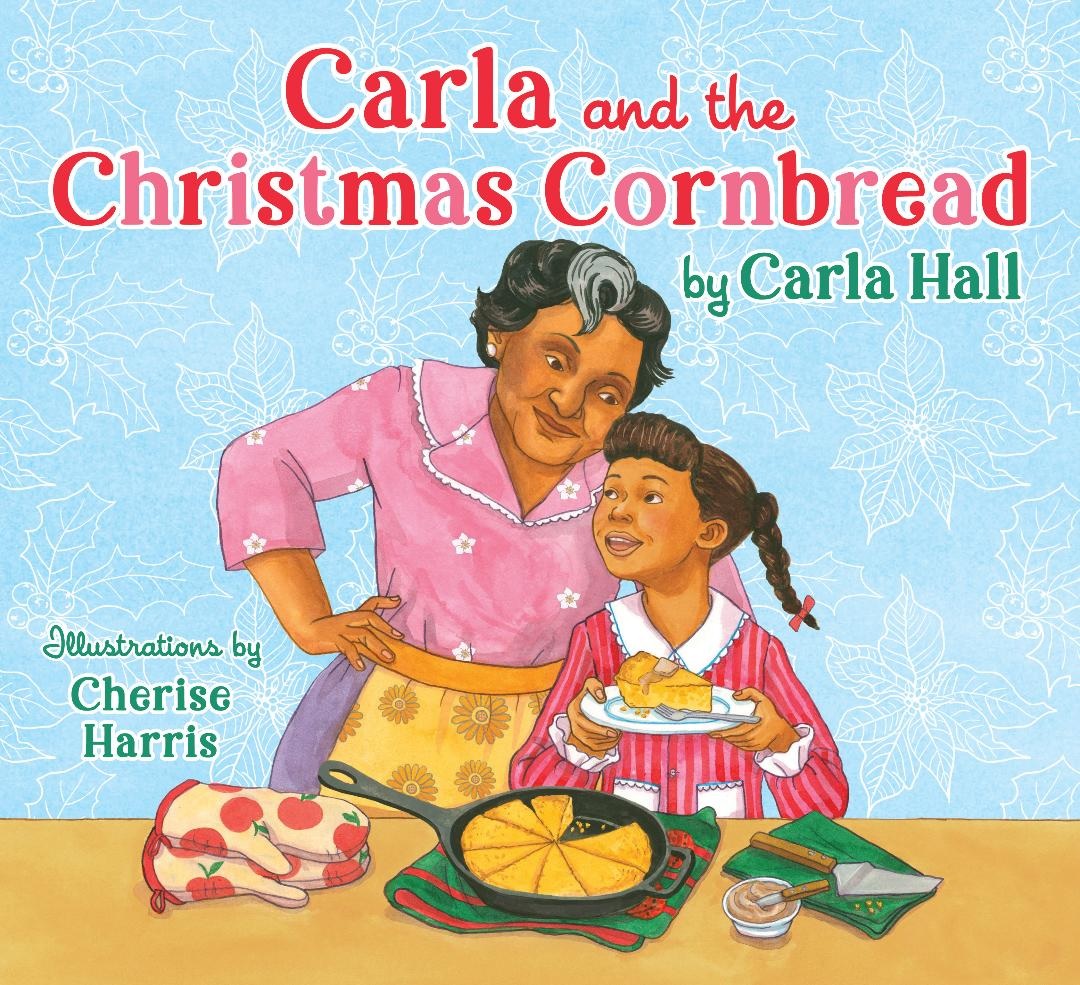 Carla and the Christmas Cornbread by Carla Hall, illus. by Cherise Harris ($17.99, hardcover, 40p., ages 4-8, 9781534494695, November 2, 2021)
Carla and the Christmas Cornbread by Carla Hall, illus. by Cherise Harris ($17.99, hardcover, 40p., ages 4-8, 9781534494695, November 2, 2021)
Millner: Two words: Carla Hall. Two more words: Black Santa. How could I resist a gorgeous Christmas tale about family, tradition and food, as told by one of America's fav chefs? Carla's story is everything good—full of memories that reminded me of my own childhood and that I just know will resonate with readers of any age, race, culture and background, as its base story is rooted in what we all need and want: love. Plus, Carla included a cornbread recipe and debut illustrator Cherise Harris tucked in a surprise and rare sighting: a Black Santa enjoying his Christmas cornbread!
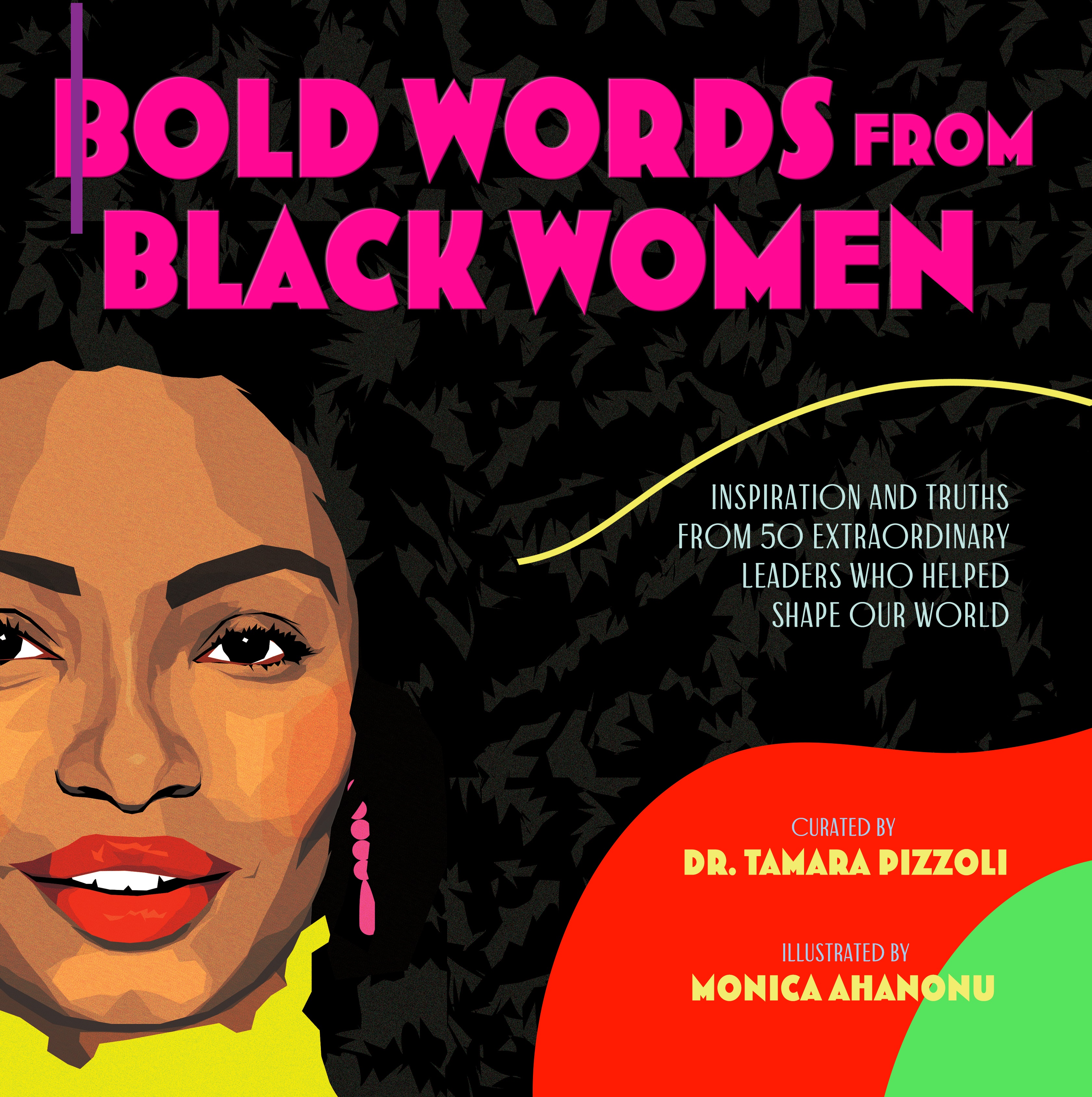 Bold Words from Black Women by Tamara Pizzoli, illus. by Monica Ahanonu ($17.99, hardcover, 112p., all ages, 9781534463943, January 11, 2022)
Bold Words from Black Women by Tamara Pizzoli, illus. by Monica Ahanonu ($17.99, hardcover, 112p., all ages, 9781534463943, January 11, 2022)
Millner: As the country reeled from the racial pandemic that drove people to mass protest in 2020, we kept hearing the slogan, "Listen to Black women," a nod to the leadership of Black women in the movement. Tamara Pizzoli smartly curates powerful, insightful words from Black women—many of them living, some of them not typically highlighted—who've used their art, politics, voices to inspire, fight and lead. Monica Ahanonu's striking portraits elevate Bold Words into an art book perfect not only for little hands, but coffee tables, too.